Over 60 Amazing Decluttering Tips For A Clutter Free Home

A cluttered home can lead to a lot of issues, but decluttering can be hard. Here are some of the very best decluttering tips that will help get things under control, once and for all!
How many times have you wanted to get started on a decluttering session, only to find yourself an hour or so into it feeling deflated and overwhelmed? (It can feel a bit like the Spring Cleaning process, right?!).
It’s all too easy to think that it’s too big a mountain to climb, so I thought that I’d share today the best decluttering tips all in one place, so that you can dip in and out for decluttering inspiration whenever you need it.
Hope it makes things a little (ideally a LOT!) easier.
Let’s get started, shall we?…
This is the most important tip I can give you – because if you’re going to declutter successfully, you need to know what constitutes clutter in the first place. After all, if you aren’t sure whether something is clutter or not, how are you ever going to make those all important decisions about everything?
{ Worth a read: What IS Clutter? The Meaning May Surprise You… }
#2 – Decluttering isn’t organising..
Decluttering is a big enough task already, without getting organised at the same time. But so many people confuse the two, and end up trying to do it all at the same time. This leads to disaster.
The ADORE Method™ that I use shows that each has their place in the process of sorting things out. First you plan (A is for assess), THEN you declutter (D) and after that, you organise (O).
Why? – because you don’t want to organise your clutter.
You don’t want to buy storage products that aren’t right for the space and number of items you actually need, and you don’t want to spend time organising stuff you don’t actually need – right?
So – remember that the decluttering process is simply the act of moving things to their rightful place (in your home or letting them leave your home) – nothing more.
Because quite frankly, that’s a big enough job by itself!
Because it’s hard work, don’t be afraid to ask for help if needed. Whether you choose to get help from a friend, family member, or a professional – do what’s right for you to make the process easier.
You don’t need to do it alone!
It’s common to think of needing someone to help you do the work of decluttering, but often you may just need someone to support you and keep you accountable and on track.
You could get this in a few ways:
- Simply tell a trusted friend, and check in often with them when you hit goals
- Join an online group with like minded people all decluttering their own homes
- Get someone to actually sit with you while you declutter. They can just chat and not get involved – but this can be a huge help if you need to get on with it but find you get distracted easily.
You may well be decluttering in areas that house someones elses stuff – so remember that you ALWAYS need to have them involved if that’s the case.
It isn’t fair to make decisions about other peoples belongings without them present, and you will find that you can’t make decisions easily without them anyway – so just get them involved.
{ Worth a Read: 4 Easy Ways To Deal With Other Peoples Clutter With Less Stress! }
This can be a brilliant idea to tackle things all in one go, in a really focused way.
It’s actually a great way to make a big dent in your decluttering (and maybe finish, depending on the level of clutter in your home) if you’re short of time. This is because you can schedule it in like you would a holiday, and you get to take advantage of doing it all in one go rather than waste time setting up and packing away in short bursts…
You could get the kids to stay at a friends or grandparents so you can really work hard – and then you can spend all your time going through your home methodically.
TIP – Have a plan for how you want to spend your time, and the order you’ll tackle things. If you don’t have a plan then you run the risk of finding yourself down a rabbit hole in one area for the entire time. Know what your end goal for the weekend is – and get moving!
You will need to have stamina when decluttering lots of items in one day. Both physical AND emotional.
You’ll be lifting, bending, walking around etc… – and you’ll be making decisions about everything you own (often with sentimental attachment as well)
As such, you’ll want to ensure your energy levels are boosted as much as possible,
Staying hydrated, eating regularly, and listening to upbeat music can all help with this.
If you’re feeling overwhelmed by the idea of decluttering your entire house, then just allow yourself to start very small.
Give yourself 15 mins and one drawer.
Once you’ve done this you’ll more often than not feel motivated to continue, and you’ll start to get into the groove of making decisions of what stays and what goes.
Don’t ever think you have to tackle an entire room in one go – this can be too time consuming and stressful – so work in the way you find the easiest and you are more likely to be successful.
Decluttering your stuff means making space for what you WILL need, and what you WANT to have in your life going forward.
As such, it’s great to have a clear picture of your future self in mind when you’re decluttering and making decision about what to keep.
For example – when I declutter my clothes, I have a Pinterest board in my personal account that I use to pin styles and items I like. After a while, this board shows certain themes again and again – and my own personal style becomes clearer. When I start to sort through my clothes, I keep this board open and visible so I can check in with whether each item fits that style or not. This makes it SO much easier to let things go.
#10 – you are allowed to keep things!
Don’t ever think that decluttering means you have to become a minimalist, and that you can’t keep items that you truly love.
Decluttering is about letting go of things that don’t mean as much to you any longer, or that you don’t need. It’s NOT about restriction or depriving you of things.
You CAN keep the memory of things without keeping the actual item though – which can help you minimise what you need to store. Take photos of items and create a photo book of memories – much easier to store if you’re lacking space, and often times they preserve the memory better (clothes and other items can deteriorate over time if not stored properly)
Getting sidetracked is easy to do and it’s the most common reason that people have for wanting help with decluttering.
Find ways of keeping going, even setting a timer for 15 minutes and making sure that you stay focused for this amount of time will pay dividends.
A short time each day that’s focused is better than trying to do a whole day but getting sidetracked while you go – you won’t feel you have finished anything, and that may make you give up.
Decluttering is lengthy work, so having something to keep you going is important.
This could be listening to the radio, to music, to an audiobook etc… – whatever works for you.
{ Related: Over 30 Brilliant Clutter Quotes To Motivate And Inspire You }
Wherever possible, avoid just throwing items in the rubbish.
A lot of the time, what’s trash to you can be treasure to someone else – you just need to know where to take it so that it can be used again.
Look for places in your locality that take specific items, or donate to local charity shops if you have a variety of items.
NOTE: Only donate items that are working and not damaged.
I can’t stress the importance of having a decluttering kit sorted and ready to go when you are in the decluttering zone.
As with doing ANY project, if you don’t have the right tools to help you, then you’ll get sidetracked, you’ll have to break your work, and you’ll waste time.
Take a moment to gather the supplies you’ll need, and you’ll thank yourself!
{ Related: 16 Essential Decluttering Supplies You’re Going To Need }
#16 – Declutter one area at a time
It’s key to that you only tackle one area at a time whenever you declutter.
When you’re decluttering your junk drawer, your bedside table, or a kitchen cabinet, for example, then this is of course easy to identify – but it’s equally important if you’re decluttering an entire room (living room, bathroom, bedroom, laundry room, kitchen, for example) to tackle sections of that space in turn.
You will then start to see a real difference rather than if you jump from place to place.
Remember that if you’re tackling one area at a time, it’s crucial to have a category for “ANOTHER ROOM”.
Have a box / storage with you for items that don’t belong in that room, and when you’ve finished with a room (AND ONLY THEN), move on to the next one and take out anything in the box that belongs there – by the time you are around the house you should have an empty box and everything will have its place.
Decluttering takes time.
Fact.
There’s really not much you can do about it. Picking up every item you own and making a decision about it is a long process.
Yes, you’ll get quicker as you streamline things – but an entire room can take a long time to declutter for the first time (anything from a few hours to a few days dependant on how much clutter there is to get through), and it may take a while to get quick at decision making for your belongings – so give yourself a break and ensure you have enough time to complete the job easily.
You don’t want to be left at the end of the day with lots of piles of things everywhere that the family has to manoeuvre around that evening – that’s just making things more difficult than they really need to be and you may want to give up which isn’t the goal.
It’s all too easy to get overwhelmed when you start to get everything out of the cupboards in one go.
You can start to drown in ‘stuff’.
So – it makes perfect sense that before you start lifting a finger, you should make a plan of how you will do it all.
If you take a little time up front to plan the space you are decluttering out, you will have more of an idea what needs to go there, and therefore what constitutes clutter for that area.
After all – decluttering doesn’t necessarily mean getting rid of things in your home, it may mean simply moving it out of the place that it is clutter, into a place where it’s needed.
So – take a few minutes to decide roughly what you want in each room in your house, and then within each room what you want where (thinking about what functions each room will be used for is a good start as you will ideally want to keep things to hand for those functions).
You may well be moving things from room to room for a while if you need to organise the spaces as well – but this will become less and less as you move around the house – so stick with it and stick to your plan!
#19 – Schedule time to declutter
Decluttering won’t just happen.
Just like any other task, you need to make some time to get it done.
The easiest way to do this is to schedule the time just as you would any other appointment. However long or short an amount of time you have available, prioritise this for decluttering until it’s finished.
It’s easy to sort through stuff and end up with lots of piles at the end of the day – feeling satisfied that you’ve done loads.
And yes, you have done loads – but it’s not finished yet…
You won’t finish your decluttering until everything is in it’s rightful place.
It’s not enough to have the items in that room put into their place – you also have to take items to other rooms in the house, and also take items to other places outside the house (charity, the tip, family and friends, etc…)
Until those piles are gone – your decluttering hasn’t finished. This is why it’s important to schedule enough time to deal with the end product of your decluttering as well as the actual decluttering.
You are going to be bending, stretching and moving a LOT while decluttering – it’s the nature of the beast! – so it makes sense to wear clothes that allow you to move easily.
Clothes that are comfortable and durable (and probably old clothes, because it can be dirty work too!) are ideal, such as leggings / sports kit etc…
Decluttering will usually involve going into less used spaces such as your loft / garage / basement – but it will also involve lifting boxes and heavy items.
As such – wearing shoes is a good idea just in case you drop anything on your feet…
Also – you are going to be sorting through the depths of your drawers and the backs of cupboards etc… – and who knows what you might find?!
As such – wearing gloves can be a great way to keep you safe from broken glass, sharp items etc…
human nature states that this will end up being the biggest pile you have at the end of the decluttering you do.
You’ll have to then create some storage space for it while you decide what to do with it (because you WILL have decide as some point – all you’re doing is delaying the action you need to take)
As a result – you’ll have created more work for yourself overall.
Don’t do it to yourself! – instead, make a commitment to decide what to do with each item as you go.
Decluttering can bring up many emotions, and we need to get into the right head space to make decisions for our stuff more easily.
It’s hard to get rid of things when we feel too many emotions, or aren’t strong enough in our thoughts…
Remembering a few things will help no end: –
- You can always borrow or buy again if you ever need that thing again
- It is just ‘stuff’ – the memories will last forever
- You have decided to declutter – so you want to create change
- Keep the end in mind – you are working towards a better place to live for you, so doing the work will pay dividends
Don’t procrastinate too long over your decisions over whether to keep things or not.
The more decisions you make, the easier it will become.
Decluttering can be very easy to get sidetracked on because you can start to look at every item really carefully, read things, reminisce over sentimental items etc… – and that all takes time.
This is when decluttering seems like too big a task, and people get despondent or give up altogether.
When you empower yourself to make decisions, you’ll find that it gets easier the more you do it.
When you declutter, you’ll end up with lots of different piles of your stuff in the space.
You don’t want them to mix together (who wants to throw away the wrong pile…?!) – so use containers for your categories.
This is especially important when the categories are items that will need to be removed or moved to another area when you’ve finished: –
- Rubbish should be placed in black bin liners immediately so you can’t see them anymore and they can be got rid of at the end of your decluttering session
- Use a container with a handle to make moving things from room to room easier
- Use plastic bags or boxes for things to go to other places such as charity, recycling, friends and family etc… – then they can go directly into your car boot ready
Don’t make yourself collect everything together and put into containers AFTER you’ve finished, because this not only is another unnecessary layer of work for yourself, but it’s also a chance to change your mind when you see things again….
Decluttering should be as easy as you can make it!
Decluttering means putting things where they belong – and so you need to have a place for everything you want to keep.
This is when the size of your home and how much storage you have really comes into play – because you have to be realistic with what you can and can’t keep.
Ideally sit down before you declutter and make a rough floor plan of your home and where everything should live.
That way – when you move things that you want to keep into those spaces – you can then also declutter the amount of items that will fit into that space – or create more storage if possible.
#28 – Set mini goals
If you’re decluttering your entire house this is a HUGE goal – and a fantastic goal. But you can get very bogged down over time by not reaching that goal more quickly (spoiler alert: it took time to get cluttered, it WILL take time to get uncluttered!).
As such, set yourself mini goals that you can celebrate as you go. Do a room or a part of a room – and then acknowledge your accomplishment. These mini-rewards will keep motivation high and spur you on.
We declutter because our homes feel cluttered and messy, right?
So it can be very disheartening to turn around part way through the process and see the space is messier than when you began.
This is NOT the point to decide it’s not working. Far from it. In fact, it HAS to get messier before it gets tidier.
There’s no way to go through everything you own in a space without taking it all out and looking through it. Go with it, and trust the process!
One of the worst parts of decluttering is taking multiple car trips to the tip / rubbish dump.
If it’s been a while since you decluttered, or it’s your first time – then the chances are high that the amount of real rubbish will be massive.
We tend to just keep things without realising….
As such, I like to make it easier by hiring a skip for a few days.
This has a couple of fantastic benefits:
- You can challenge yourself to fill it (hire the biggest you can, because you WILL fill it!), and therefore you’ll get rid of more.
- They take it away for you. This is a LOT quicker than several car trips – and the cost of hire is greatly outweighed by the time and energy you’d otherwise have to spend.
Decluttering brings up many negative emotions – with guilt being right up there with the worst.
After all – how can you let things go if you feel guilty about it?
But it’s time to stop the guilt. You are actually feeling guilty about keeping it for the wrong reasons if you think about – so do what’s right for you, and let the items go…
Decluttering is tiring in itself – both physically and mentally – so it’s just not going to be successful if you start when you’re tired.
Your decision making will be affected – you’ll probably end up keeping more than you would if you were more awake – and you won’t make that much progress.
If you have a bad decluttering session it will put a bad taste in your mouth for the next one, and over time this could affect your willingness to tackle things at all.
So – keep your decluttering for when you have the energy to do it. Pick the time of day that works best for you, and choose a day that you have the stamina necessary.
I LOVE this tip! – because it’s all too easy to forget how far we’ve come when it comes to decluttering a space.
We get used to the new look very quickly – and can feel that we haven’t done as much as we actually have – which can affect motivation to carry on.
As such – take a photo before you start, and then you can compare to where you’ve go to.
Decluttering won’t suddenly make your home Pinterest / Instagram / Facebook worthy. In fact -it may well not change the look of your home very much at all (especially if your clutter was behind closed doors like in cupboards and drawers etc…)
But don’t let that stop you – because decluttering is about making your life simpler, rather than reaching for perfect looking spaces.
What decluttering IS is a way to make your home tidier, easier to manage, and ready for organising/styling. And that’s worth it, right?
With such a big task ahead, it’s all too easy to get overwhelmed.
The trick is to take it one step a a time, one item at a time.
Just like running a marathon – you have to take it in chunks, otherwise you’d never start.
{ Related: How to Start Decluttering When You’re Overwhelmed }
With so many hard decisions to make when you declutter – it’s nice to put a more positive spin on it as much as you can.
As such, I like to focus on what i’m KEEPING rather than what I’m letting go.
To do this, I try and think of myself as the curator of my home. Just like a museum curator gets to pick and choose what makes the best of the space and what ‘s most useful etc… – so too can you for your own home.
It’s a lovely way of thinking when you declutter – why not try it next time!
#37 – Don’t keep things just because you can
If you’ve got lots of storage space, and/or a spare bedroom, and/or a double garage – etc… – then it’s likely that you’re not decluttering to make space.
However – this can be a dangerous thing as well as a luxury – because you may well decide to keep more than you really need to due to the space you have available.
Try and think of the stuff rather than how you’ll keep the stuff, and that should help you declutter everything you need to.
Limits are important in decluttering – because you can keep more of certain items if you don’t put a limit on them.
For instance – if you have lots of pairs of jeans that all fit you, and all look good, the temptation is to keep them all. However, if you end up keeping 40 pairs, is this really necessary? And where will you keep them all?
Think of your stuff in terms of the space you have available – especially if that space is limited – and only keep what can fit in the space you’ve got.
When purging your home of all that you don’t want or need, you have to learn that it takes time. It took time to collect everything – so it stands to reason that it will take time to go through each item and decide on what to do with it.
In order to stop the clutter collecting again, and undoing all your hard work, you need to get ot the bottom of why you had that stuff build up in the first place.
There are SO many reason that could be at play – including over shopping, emotional baggage, no place designated for it – and loads more.
Look at your home and be honest with yourself. What will you need to overcome to tackle the underlying root of the clutter issue?
Repeat after me – decluttering is not letting go of things you love. Decluttering is NOT letting go of things you love.
People often think that decluttering is tied to being a minimalist – and that’s just not the case (unless you want it to be!). You are allowed to keep whatever you want in the end.
YOU are deciding what makes you happy – so you do you!
To get as much momentum and success as possible – it’s sensible to choose a starting point that will make the biggest impact for you, and how you like to work.
There are loads to choose from, including starting from a place that holds less sentiment, or even just starting where you are standing right now. Just decide on where makes sense for you, and go for it!
{ Related: Where to Start Decluttering – 5 Great Options To Try! }
Acknowledge and celebrate the hard work you achieve – at every point that makes sense to you. Definitely don’t leave it just until the end, as that could be a while off!
Mini rewards will keep you going – so try and make a point of giving yourself a treat after each space / room / area you declutter.
{ Worth a Read: 32 Brilliant Ways to Reward Yourself For a Job Well Done }
A great way to get a little cash for your decluttering (not only to get paid for your work, but also to get some money back for items you paid for and don’t need anymore), is to sell some of it.
It can be a good idea – but you also have to be careful for a variety of reasons:
- The time and energy taken to sell may not be worth what you get for the item
- You may not end up being able to sell the item at all
- The items have to stay in your house until they are sold – which causes extra clutter
- You may be disappointed at what it’s worth now compared to what you paid for it
{ Related: Places to Sell Your Stuff }
It can be tempting to let things go to friends and family – but be aware that they may not actually want or need the item(s) either.
You may be causing them to collect clutter, and feel guilty if they want to let it go too…
As such – really think about what you want to give away, and have an honest conversation with the potential receiver of the item(s) before you give them the stuff.
This is a really important tip – because I’ve seen it time and time again where someone has done a great job decluttering, only to back track overnight.
The bags that they have filled of items to donate are sitting by the front door waiting to be taken away – and they are far too tempting to look through quickly.
After all – it can’t hurt, right?
WRONG!
When you start to go through things, you end up second guessing your decision, and taking items back out of the bags…. it’s a slippery slope!
So just make sure that the bags / boxes of stuff are taken away as soon as you possibly can to avoid any of this happening to you!
When you declutter you WILL have items that you don’t want anymore but that are too good to just throw away.
Make sure you know what your local area has to offer in terms of where you can take things.
This not only makes it easier for you to plan a donation run at the end of your decluttering session(s), but also it makes it easier to pack things up to take because you know what can go where and so you can pack them up together instead of having to sort through when you get there.
Keep momentum high – or even just help yourself get started – by setting a timer for your decluttering sessions.
If you’re having trouble getting started, or keeping going, then having just 10 minutes on the timer can be less daunting than an unspecified and unending time limit.
Also, you may be very surprised at what happens when you get started, because oftentimes you get in the groove and want to continue.
TIP – This is also a great way to get others involved – because you can create a race to find things to let go of with kids, for example. Makes it more fun for them!
#49 – Use a decluttering checklist
We all love to tick things off a list, right? So it makes sense to have a checklist for any decluttering you do as well.
There are lots of ways you could create this list:
- Specific item a day (I have a 365 items to declutter checklist series you may want to try)
- Every room, and then each space split up into sections (i.e. each cupboard, the wall space, the floor space, etc…)
- Different categories (i.e. all clothes, all books, all photos etc… – this is very Marie Kondo -esque!)
When you get deep into a space, it’s easy to get bored by it, and want to move to the next space (shiny object syndrome!).
But don’t!
Honestly – you’ll get things finished so much more quickly when you focus on one space at a time and allow yourself to move around your house with a plan.
You will be able to know where you need to keep clutter free from now on – and where is still in progress – and so you’ll be able to keep your sanity in tact as well!
Saying YES to something (i.e. keeping it) means that you are saying yes to looking after that item. This will take you time, energy and possibly money.
Knowing this makes keeping something a harder decision sometimes – and that can really help if it’s something you’re otherwise on the fence about.
Even when you want to declutter every part of your home, it’s nice to start with a few quick wins.
No win is quicker than getting rid of the obvious rubbish first.
So – grab a bin bag and move around your home putting anything in the bag that is true rubbish.
This not only make every room feel a little lighter, but it makes each space a little easier when you get to it properly.
You don’t want to organise your clutter, right? so why would you try and organise any area before you know what’s staying and what’s going?
If you buy the storage or organiser before you know what it needs to store, you run the risk of getting the wrong size, the wrong style, and the wrong everything!
This wastes money and time – and actually ends up creating more possible clutter overall.
Ugh!
Decluttering doesn’t have to be dull – and there are plenty of ways to make it more fun, including:
- Put on music when decluttering a room – watch a film when sorting through piles of paperwork – ANYTHING that makes things fun while you are working – it doesn’t have to feel like a chore!
- Make a challenge for yourself – like declutter one thing a day for a year, or a room per week – etc…
When you get bogged down in the depths of decluttering (you will, it’s inevitable) – you need something to focus on to stay motivated.
That’s where knowing your WHY comes into play.
Knowing why you’re doing it in the first place, and keeping that front and centre in your head, will help drive you on.
Some ideas for your WHY are:
- To teach your kids how to keep a clutter free home
- To free up time each day not having to look for lost items
- To lessen stress and arguments
What will YOUR ‘why’ be?
#56 – Make it easy to do little and often
Get the kit ready, have clothes to put on, and a checklist to follow so you know where to start again.
Often it’s the thought of having to prepare that stops us starting again – so take away as many hurdles as possible (I liken this to having your gym bag ready and clothes laid out for the morning so you can easily grab and go)
Regular decluttering sessions will keep you from getting too cluttered, and unlike cleaning – every decluttering session will get easier and easier.
Have a clearout every season, every month, every year – or however often you feel will work best for you.
It’s not just your responsibility – it’s everyone who lives in your home. Make kids responsible for their rooms, and other responsible for their spaces in the house. You can of course support and help them, but it can’t just be your job otherwise they won’t feel compelled to help keep things clutter free going forward.
You need to make the time, because if you spend the time now, you’ll be creating more time for the future to catch up or do other things.
Ways to make time include:
- Take a day or two off work
- Get up earlier or go to bed later
- Stop watching a regular TV programme
Truth is – you CAN find the time if you truly want to, but it won’t just appear one day (when have you ever had a day totally free with nothing to do? exactly!)
If you keep things because you’re worried that you’ll need them at some point – STOP IT!
Seriously. If you think about it – this can be a reason to keep everything.
Instead, give yourself permission to let things go. You can always borrow, hire etc… if you really do need something again…
Probably the most important decluttering tip – and the last of these easy decluttering tips – is the maintenance part after you’ve finished.
It’s a HUGE part of your decluttering journey and the decluttering process as a whole.
Don’t allow things to get cluttered again – now you’ve done the hard work you want to stay on top of things as much as possible.
Simply start by doing a 15 minute tidy up at the end of each day.
Put things back where they should go, don’t allow things to come into the house if they will clutter it up (get rid of junk mail etc… right by the front door).
Phew! – loads of excellent decluttering tips that you can use next time you decide to start letting things go
Following even a handful of these tips can help you get through your home faster, with less stress, and more fun – and that’s got to be good, right?!

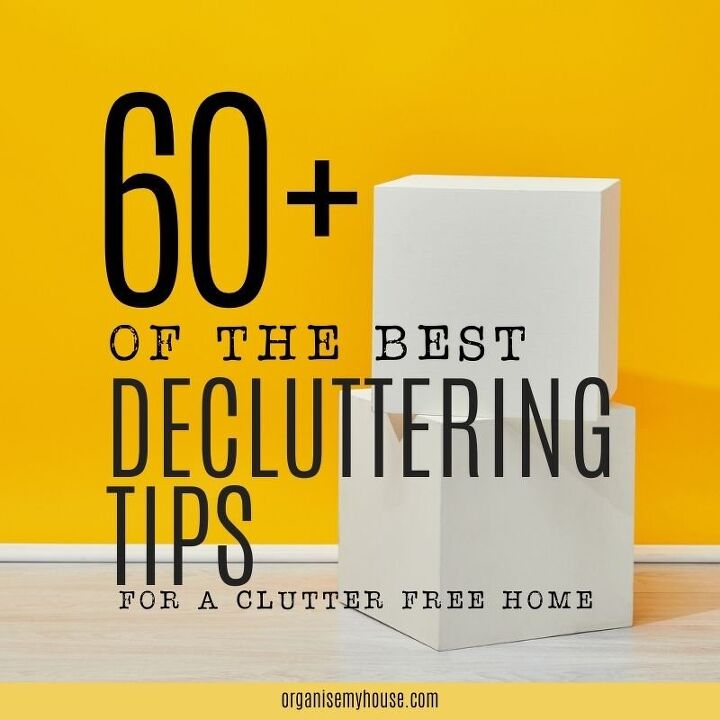









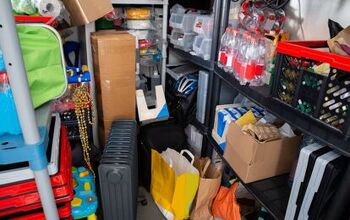

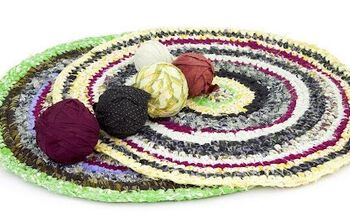

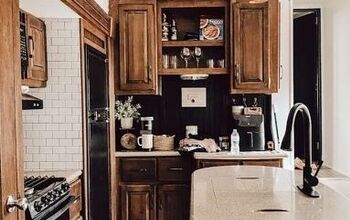
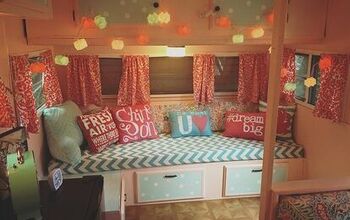
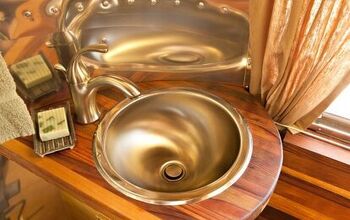
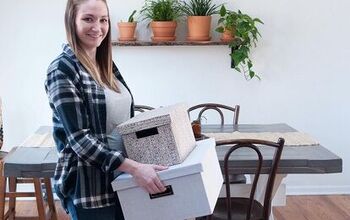

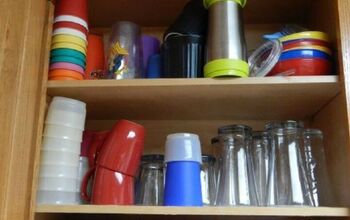








Comments
Join the conversation
Your words are life changing, really. So helpful emotionally, mentally and all ends up being a positive physical impact on our lives. Magical, and thank you! YOU KNOW for real how people are :)
❤️❤️ Thanks much for posting this article. Great ideas